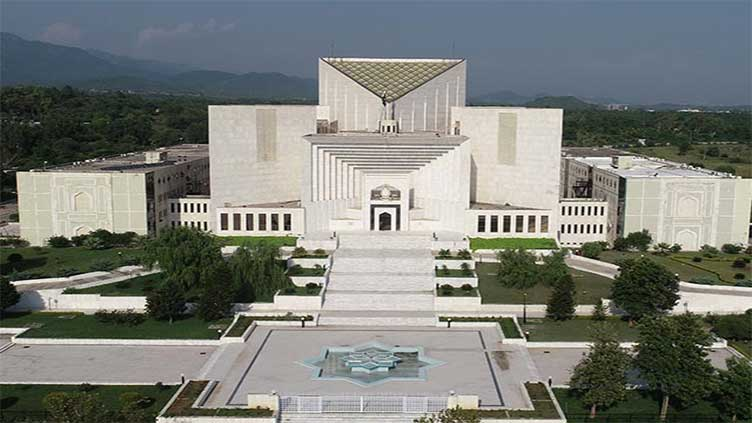ISLAMABAD: The Supreme Court has made a significant decision regarding Article 63(A). On Thursday, it overturned its previous ruling that restricted lawmakers from voting against their party’s directives. This ruling came after hearing a plea from the Supreme Court Bar Association (SCBA). The five-member bench, led by Chief Justice of Pakistan Qazi Faez Isa, announced the unanimous verdict.
The controversy over the defection clause dates back to a reference filed by the Pakistan Tehreek-e-Insaf (PTI) government in 2022. They sought the Supreme Court’s interpretation of Article 63(A) to address defections and promote democratic accountability. In a 3-2 judgment at that time, the court prohibited lawmakers from straying from their party lines during voting.
Three judges—former Chief Justice Umar Ata Bandial, Justice Ijazul Ahsan, and Justice Munib—supported the initial verdict. However, Justice Mandokhail and Justice Mazhar dissented. Following the earlier ruling, the SCBA filed a plea to review the decision on counting the votes of dissident lawmakers. They argued that dissident votes should still be counted, even if those lawmakers are de-seated.
The SCBA claimed that the court’s earlier opinion on disregarding dissident votes contradicted the Constitution and interfered with its intent.
What does Article 63(A) say? Article 63(A) addresses the issue of defection among parliamentarians. It states that a lawmaker can be disqualified if they vote contrary to their party’s instructions. This requirement applies in three specific situations: the election of the prime minister or chief minister, votes of confidence or no-confidence, and money bills or constitutional amendment bills.
For a party to declare a defection, the party head must present a written notice that the lawmaker has defected. Before this declaration is made, the party leader must allow the lawmaker to explain their reasons for dissenting. Afterward, the party chief submits the declaration to the speaker. The speaker then forwards it to the Chief Election Commissioner (CEC), who has 30 days to confirm the declaration. If confirmed, the lawmaker loses their seat, which becomes vacant.
The Supreme Court’s recent ruling clarifies the application of Article 63(A) and its impact on parliamentary proceedings, particularly concerning defection and dissent among lawmakers.


